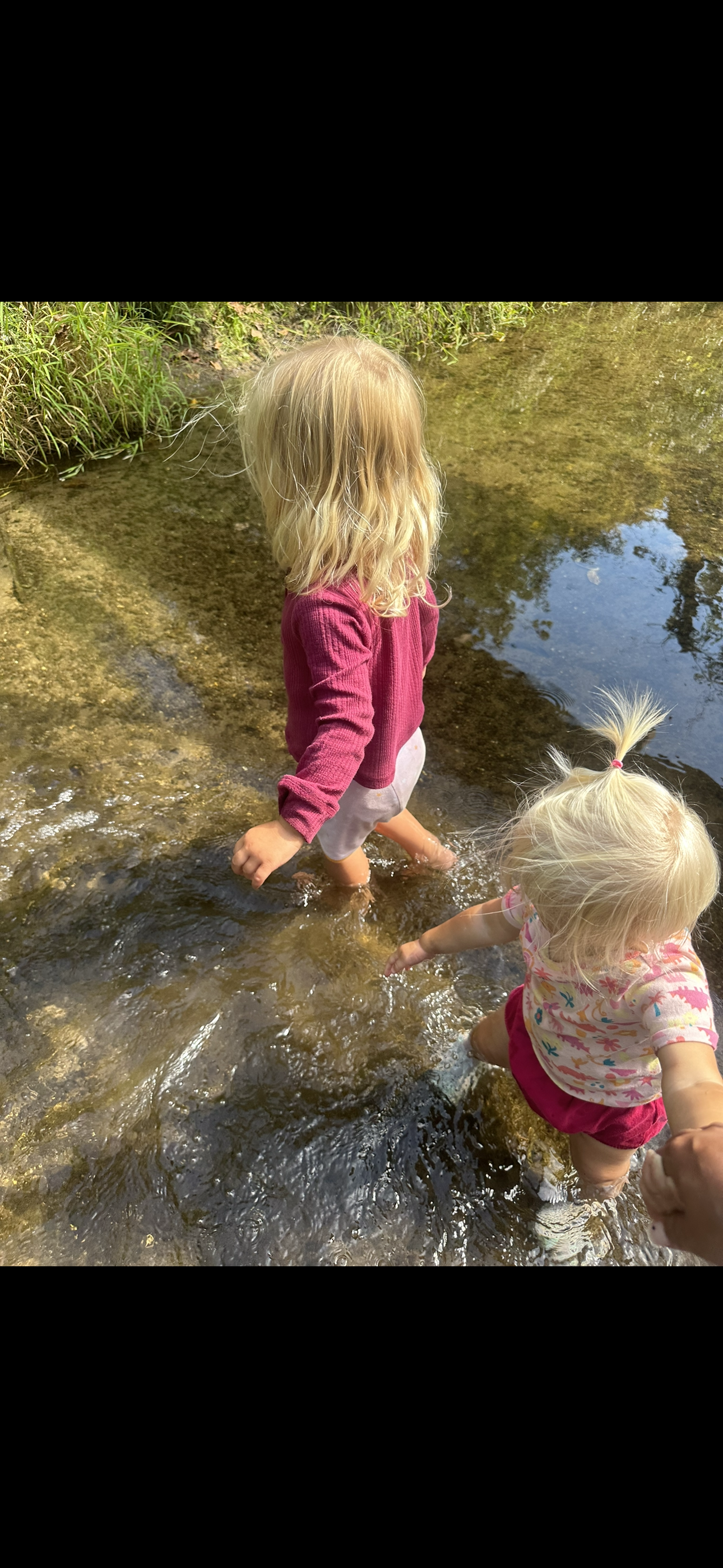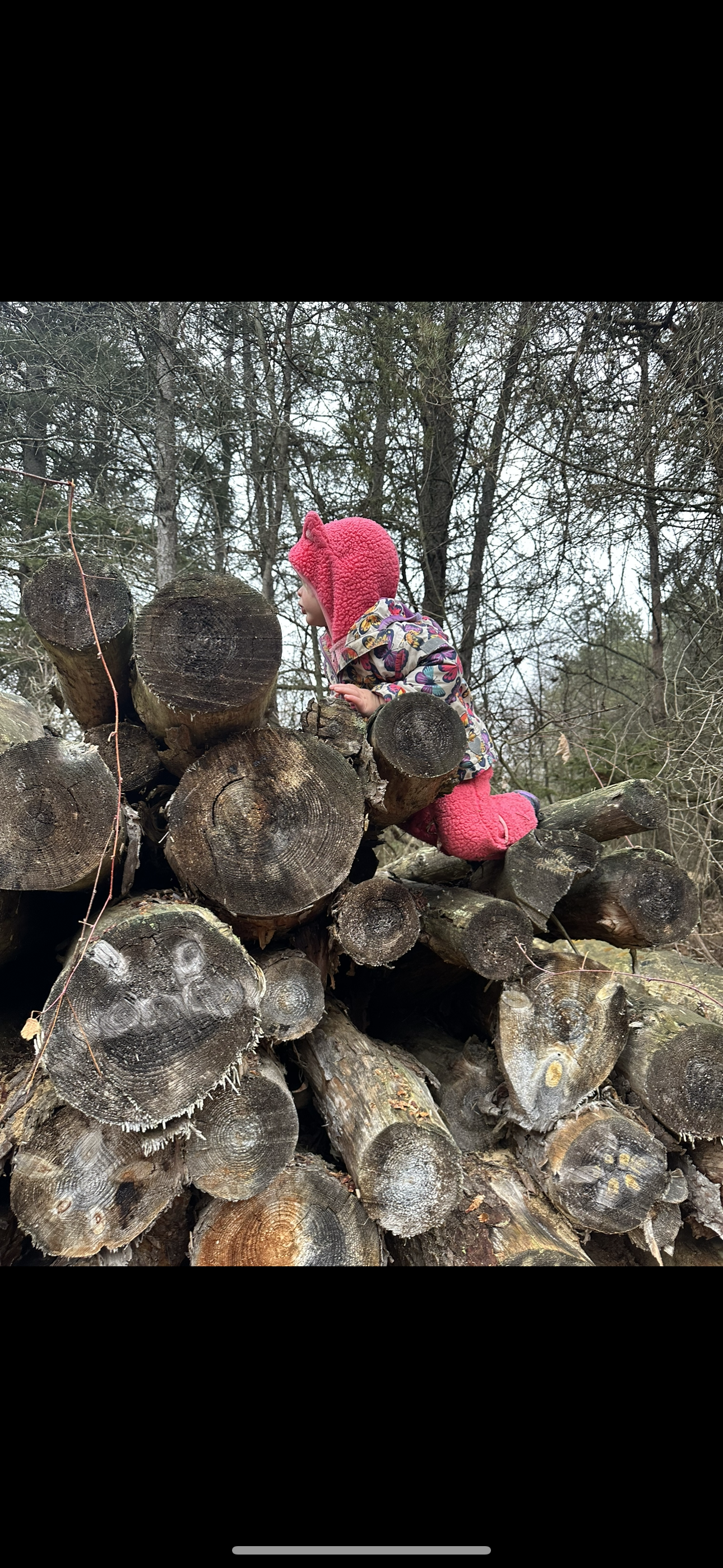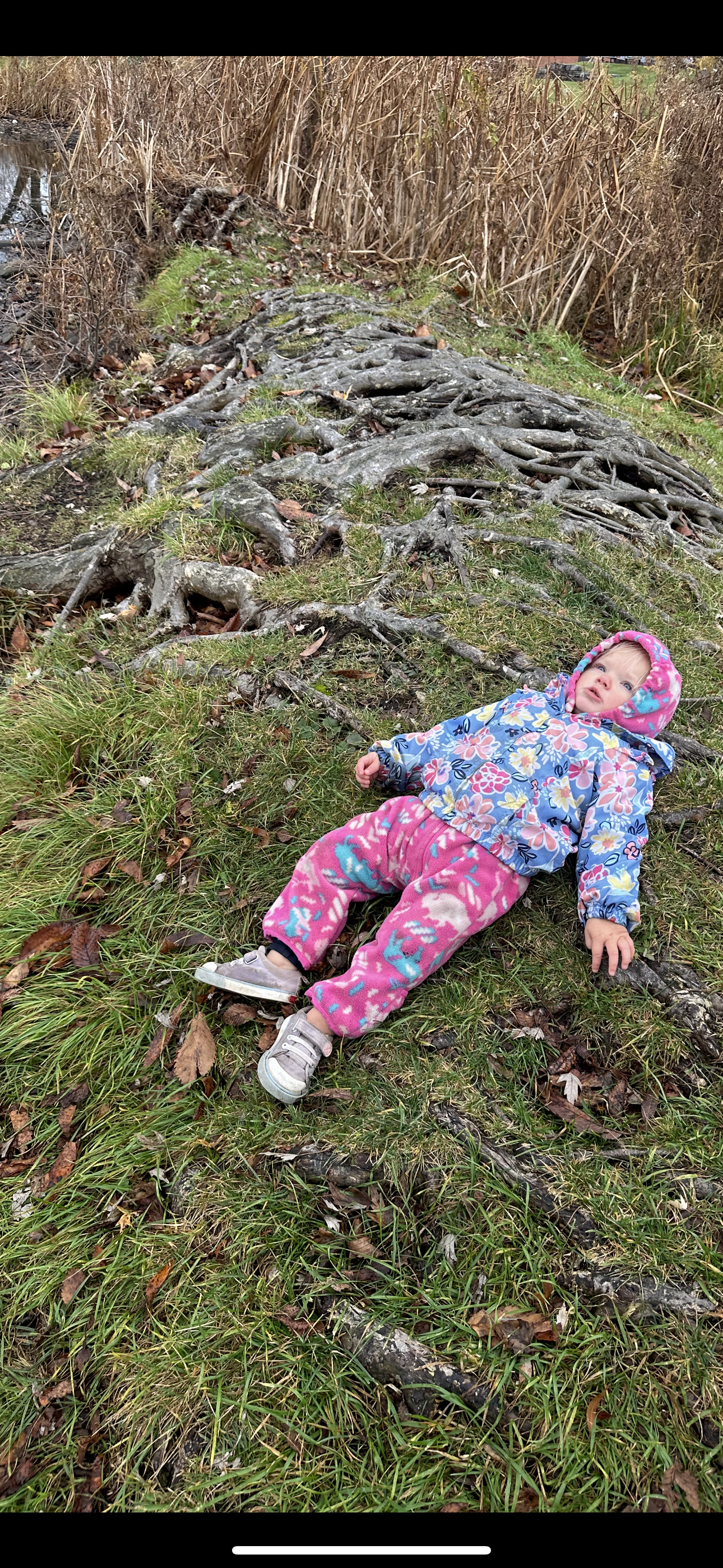
Roots & Rivers
Outdoor learning
Where learning flourishes in nature and play!
About us
Roots & Rivers Outdoor Learning offers a unique educational experience for children, blending child-led play with a strong academic foundation and a focus on mental health and holistic development. Our programs cater to children ages 18 months - 5 years old, providing an enriching environment for families who are homeschooling or exploring homeschooling options.
At Roots & Rivers, children explore the natural world through outdoor adventures, foraging, and creative play, all while engaging in activities that stimulate curiosity and learning. Our outdoor area serves as a dynamic space for exploration, while our indoor area fosters skills such as cooking, felting, and academic learning in line with a school-based curriculum.
With a commitment to nurturing the whole child, our programs emphasize emotional well-being, self-expression, and a love for nature. We believe in creating a balanced and supportive environment where children can grow academically, socially, and emotionally.
Roots & Rivers Outdoor learning is a partner agency of Willow Tree Mind & Wellness inc. we are not located on site in Toronto with Willow Tree, we are located in Udora, Ontario!
Check us out on Social Media Here:
Learn more about our Little Roots program below !
“Learning about the lives and behaviours of animals and plants helps children develop empathy, responsibility and an appreciation for biodiversity, contributing to positive emotional and social development”
—Gibson & Goldman (2015) The role of animals and nature in the emotional development of children. Journal of Environmental Psychology, 42, 150-161.
Research suggests that play in nature has been linked to positive outcomes in terms of reducing stress and anxiety, as well as increasing overall happiness and well-being for children
- Kuo & Taylor (2004) A Potential Natural Treatment for Attention-Deficit/Hyperactivity Disorder. American Journal of Public Health, 94 (9), p1580-1586.
Little Roots
What is Little Roots?
Little Roots is an outdoor learning program dedicated to fostering the social, emotional, and academic development of your child to to promote well being and quality education. The program emphasizes child-led play in nature, sensory activities with natural elements, and hands-on experiences like foraging education and cooking. Children will also have access to an indoor, barn-style classroom where they can bring natural materials into a more traditional curriculum, creating a unique blend of outdoor exploration learning.
Who is the program for?
Our Little Roots program is designed for children 18 months - 5 years old
(Pre-K to Kindergarten)
When is the program?
Our Winter Term is:
January 6th - March 7th 2025 (9 weeks) with monthly enrollment options.
Mondays, Wednesdays, and Fridays from 9:00 AM to 12:00 PM (3 hours).
Where is the program?
The program takes place in a residential community in Udora, Ontario near Ravenshoe Rd. and Weirs side road. The program takes place on teachers property as well as the surrounding parkland in the community.
The exact address will be provided via private inquire or after registration due to confidentiality purposes.
Program Cost
The program is $35 per day (3 hours a day, 3 days per week).
Payment is made monthly with the initial monthly payment made during registration.
Monthly cost is $420.00
Continue to learn more about the program below!

“Being in touch with nature and its beautiful creatures,
Teaches us about the delicate balance of life,
And a way to reconnect with something larger then ourselves”
Who Facilitates The Program?
Founder & Lead Facilitator
Melissa Reynolds, CYCP
Melissa is the founder of Roots & Rivers Outdoor Learning.
She is a Child and Youth Care Practitioner registered with the Ontario Association of Child and Youth Care. With over 10 years of experience working with children and youth across a variety of educational and clinical settings. Melissa has experience working in school boards, special needs classrooms, mental health clinics, child development centers, montessori’s and other alternative education environments. Melissa has experience implementing Cognitive Behavioural Therapy and strategies from Applied Behaviour Analysis to promote children’s mental health and healthy development.
Melissa’s unique blend of alternative education and evidence-based therapy experience provides her with comprehensive knowledge to develop holistic programming for children to promote social-emotional development.
Melissa is also a Mother, and her true passion lies in connecting kids with nature.
“I love getting outside and helping children explore the world around them—whether it’s foraging for food, observing insects and animals, or simply immersing ourselves in the beauty of the outdoors. I’m also a big advocate for supporting social-emotional development through nourishing, homemade foods that promote gut health and help regulate the body and mind.”
Melissa believes that creating experiences that nurture both the body and the brain, fostering a deeper connection to the natural world, ourselves and those around us!
Main Goals of The Little Roots Program:
1. Promote Mental Health and Emotional Well-being
Stress Reduction: Encourage mindfulness and relaxation techniques in nature, helping children manage anxiety and stress.
Emotional Expression: Create a space where children can safely express and process their emotions, promoting emotional literacy and resilience.
Connection to Nature: Foster a sense of calm and peace by immersing children in natural surroundings, which have been shown to reduce mental fatigue and improve overall mood.
2. Encourage Social Skills and Cooperation
Collaboration: Provide opportunities for group activities that require cooperation, such as building structures or solving challenges together.
Conflict Resolution: Support children in resolving disputes and understanding different perspectives, teaching important social-emotional skills.
Community Building: Build a sense of belonging and community among children, where they learn to care for each other and their environment.
3. Foster Physical Development and Well-being
Motor Skills: Offer activities that engage both fine and gross motor skills, such as climbing trees, balancing, and using tools, helping to develop physical coordination.
Risk Management: Teach children to assess and navigate risks in a controlled, supportive environment, building self-confidence and independence.
Healthy Habits: Promote an active lifestyle and an appreciation for outdoor physical activity, encouraging long-term health.
4. Enhance Cognitive and Academic Skills
Curiosity and Inquiry: Encourage exploration and problem-solving, which can develop critical thinking skills and a love for learning.
Nature-Based Learning: Integrate educational activities related to the natural world (e.g., studying plants, animals, ecosystems) to enrich children’s knowledge and cognitive abilities.
Creativity and Imagination: Provide opportunities for imaginative play and creative thinking through nature-based storytelling, art, and role-playing.
5. Support Development of Self-Esteem and Independence
Autonomy: Give children opportunities to make choices and decisions, promoting a sense of ownership over their learning and activities.
Goal Setting: Help children set and achieve personal goals, whether in physical tasks or learning experiences, to build confidence and self-worth.
Resilience and Perseverance: Encourage children to face challenges and learn from failures in a supportive environment, fostering resilience and a growth mindset.
6. Foster a Connection to the Environment and Sustainability
Environmental Stewardship: Teach children to appreciate and respect the natural world, promoting sustainable practices and environmental awareness.
Ecological Understanding: Help children understand ecological concepts through hands-on experiences with plants, animals, and ecosystems.
Sense of Responsibility: Encourage children to take responsibility for the care of their outdoor spaces, instilling a sense of duty towards nature.
7. Cultivate a Holistic Approach to Development
Whole-Child Focus: Address the physical, emotional, social, and cognitive development of each child, ensuring a balanced and integrated approach to growth.
Individualized Support: Recognize and respond to the unique needs, strengths, and interests of each child, fostering a personalized learning experience.
Register Now!
Have Additional Questions?
Reach out to Melissa via email below:
rootsandriversoutdoorlearning@gmail.com













